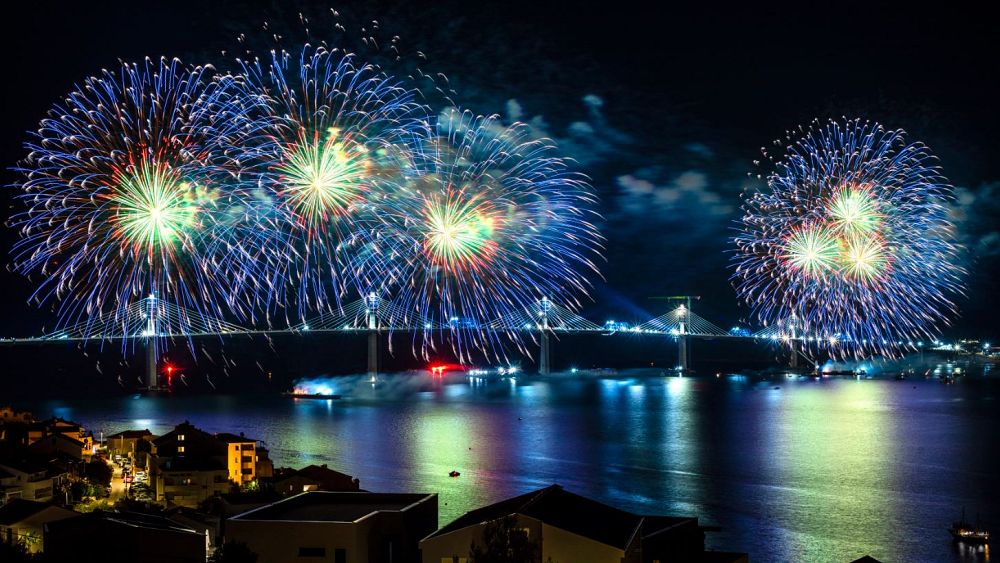
Croatia has been celebrating as a major European Union-funded bridge nears completion.
The Pelješac Bridge will connect two swaths of the Croatian coastline that are divided by a small stretch of Bosnia and Herzegovina’s territory.
Until now, visitors wanting to travel to the Old Town section of Dubrovnik have to pass through two border checkpoints between Bosnia and Croatia at the Bosnian seaside port of Neum.
After the final segment of the bridge was installed on Wednesday, a spectacular opening ceremony was held at midnight, featuring folk dancers, singing, and a huge fireworks display.
Croatian Prime Minister Andrej Plenković said during the ceremony that the bridge fulfils a long-time dream to have the Adriatic coastline connected.
“[It represents] a fascinating strategic accomplishment of the Croatian people and their state,” Plenković added.
Zagreb hopes that the new bridge — linking the Pelješac peninsula with the Croatian mainland — will facilitate the country’s entry into the Schengen zone of free movement.
The bridge and its connecting roads are expected to be completed by June 2022, when it will open to the public.
The 2.4 kilometre-long structure is being built by the China Road and Bridge Corporation (CRBC) after the company won an international bid in 2018.
The €420-million construction is 85% financed by the EU and is the first major Chinese infrastructure project paid for by European taxpayers.
The awarding of the contract was not without controversy, as the CRBC beat out competition from an Austrian company and an Italian-Turkish consortium.
In recent years, China has been pouring funds into Central and Eastern European countries as part of its strategic Belt and Road project, aimed at improving infrastructure and creating a network of transportation and trade links between China and Europe.
EU officials have expressed concern that the Chinese investments boost Beijing’s economic and political clout in the region, which is still reeling from the breakup of the former Yugoslavia.
Bosnian officials had separately opposed the construction project, claiming the bridge that circumvents Bosnian territory violates the state’s sovereign access to open seas in the Adriatic.
The planned 36-month construction of the Pelješac Bridge was also delayed by several months due to the COVID-19 pandemic.
But Plenković rejected the disputes and said the bridge “connects not only Croatia, but it connects the EU as well as Bosnia-Herzegovina.”











